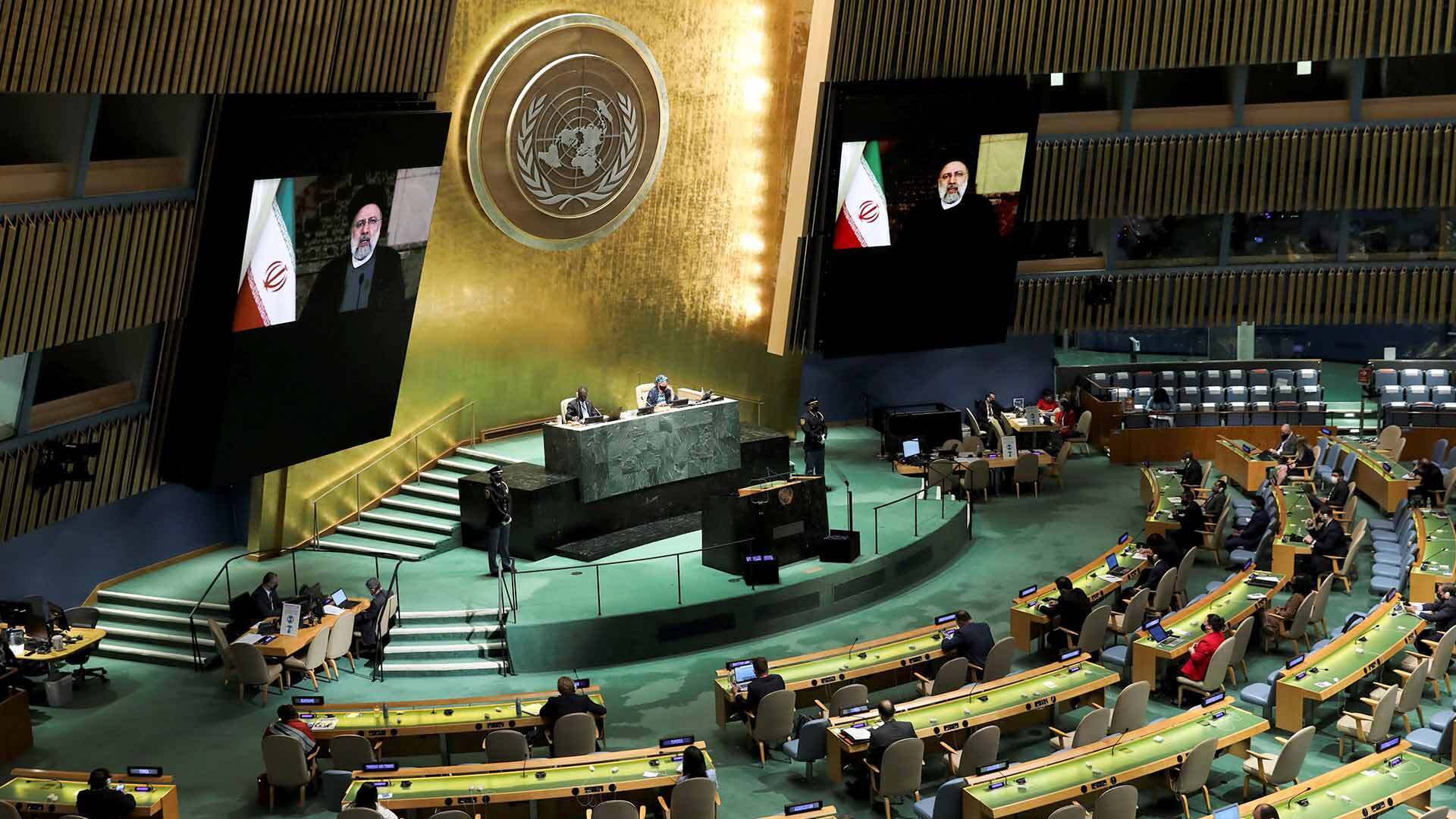- October 19, 2021
- By Center for International and Security Studies at Maryland Staff
Iranians continue to hold very negative views of the United States after a brief bounceback following the inauguration of President Joe Biden, and have lost confidence in reviving the 2015 nuclear agreement due to a lack of progress during his first eight months in office, according to a new survey conducted by the University of Maryland.
The nationally representative survey released yesterday by the Center for International and Security Studies at Maryland found that a full two-thirds of Iranians rated Biden’s policies toward their nation as “hostile” (0-4 on a 10-point scale), up from 52% in February. Unfavorable views of the U.S. stood at 76%, close to the historic high of 77% in October 2020.
In addition, just under half (48%) support the stalled 2015 multinational deal to lift sanctions against Iran in exchange for restricting its nuclear arms program; only a third think that the U.S. would observe its commitments if the agreement is restored. Confidence that other nations would comply has risen significantly, however, from 30% in October 2020 to 49% now.
This helps explain why a slim majority of Iranians (52%) say that Iran should let European nations try to get the U.S. to show more flexibility—but not make more concessions itself. Twenty-seven percent want Iran to show more flexibility to get the deal, formally known as the Joint Comprehensive Plan of Action (JCPOA), restored soon, while 16% don’t want it at all.
“The vast majority of Iranians would prefer a restoration of the JCPOA to an explicit rejection by Iran, but they are not pressing (President Ebrahim) Raisi to make any new concessions,” said Nancy Gallagher, CISSM director.
If the United States does not provide reliable assurances, only a quarter (28%) of the public think that the newly elected president should formally withdraw from the JCPOA; 36% support continuing the current policy of remaining in the deal, but not fulfilling all of Iran’s obligations; and 31% think Iran should gradually move back into full compliance.
But if the U.S. does not return to the JCPOA, 63% say that Iran should continue to cooperate with International Atomic Energy Agency inspectors at (37%) or above (26%) the current level.
CISSM conducts public opinion studies in Iran to improve understanding of its citizens’ views, and most recently surveyed 1,001 Iranians from Aug. 30-Sept. 9 in conjunction with IranPoll, an independent, Toronto-based polling organization. It found that 89% percent of Iranians believe developing Iran’s missile program is very important (71%) or somewhat important (18%), which is not significantly different from previous years. Fifty-four percent now say that it is better for Iran to solve its problems by seeking solutions with other countries, compared with 43% who prefer for Iran to become the most powerful country in the region.
Although the Taliban is deeply unpopular with the Iranian public (88% unfavorable), a majority (64%) views U.S. military withdrawal from Afghanistan as a good thing for Iran. While 62% expect the flow of Afghan refugees into Iran will increase, 40% predict that drug traffic across the border will decline. Iranians are divided on the role Iran should play in Afghanistan, with 47% saying that Iran should seek to increase its influence there, while 40% say that Iran should mostly avoid getting involved.
Disillusioned with the possibility of improved relations with the West, a majority (54%) now say that Iran should strengthen diplomatic and trade relations with Asian countries rather than European countries (39%), a five-point jump from May 2019. China’s favorability ratings, which took a big hit after the COVID-19 pandemic started, are back to pre-pandemic levels: 14% very favorable and 44% somewhat favorable.
Topics
ResearchUnits
School of Public Policy